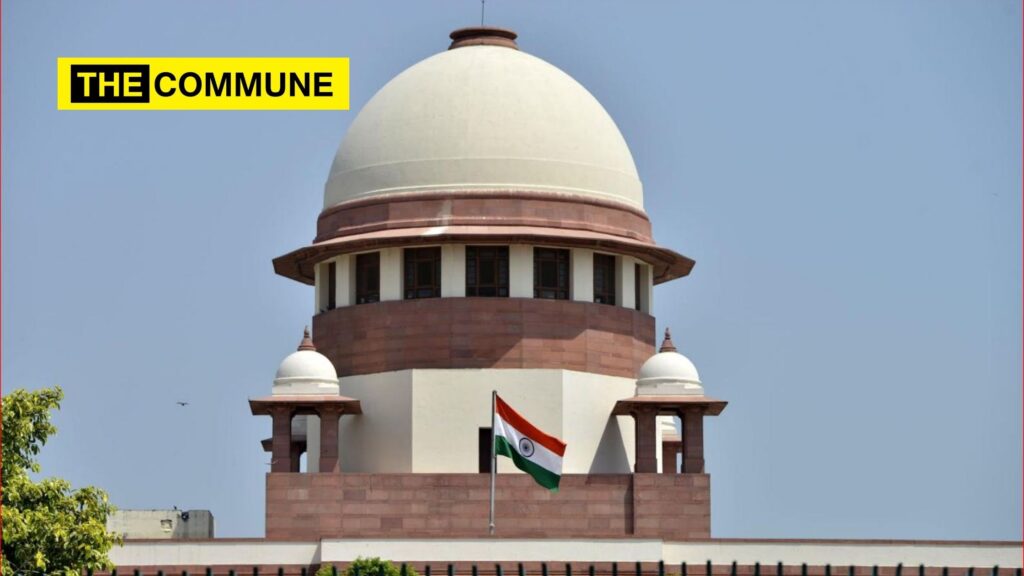In a significant 6:1 ruling, the Supreme Court announced on 1st August 2024 that subclassification of Scheduled Castes (SCs) and Scheduled Tribes (STs) is permissible, allowing for separate quotas for the most marginalised within these communities.
The Constitution bench, headed by Chief Justice of India DY Chandrachud, overturned a 2005 decision that determined state governments could not create subcategories of SCs for reservation purposes. This ruling upholds the Punjab Scheduled Caste and Backward Classes Act of 2006 and the Tamil Nadu Arundathiyars Act.
CJI Chandrachud stated that having a quota within a quota does not compromise quality, emphasizing that SCs and STs often struggle to progress due to systemic discrimination. The court asserted that subclassification does not violate the equality principle outlined in Article 14 of the Constitution.
However, the Supreme Court stipulated that states must justify their basis for subclassification with quantifiable and demonstrable data. CJI Chandrachud emphasized that “States cannot act according to their whims or political expediency, and their decisions are subject to judicial review.”
Emphasis On Need For Policy To Identify Creamy Layer Among SC/ST
Justice BR Gavai, aligning with the majority, stressed the state’s responsibility to provide preferential treatment to the most disadvantaged communities. He noted that only a small number within the SC/ST categories benefit from reservations and acknowledged the historical oppression faced by specific groups.
Justice Gavai called for a policy to identify the creamy layer among SCs and STs before allowing subclassification, stating, “This is the only way to achieve true equality.” Justice Vikram Nath concurred, indicating that the creamy layer principle should apply to SCs as to Other Backward Classes (OBCs). The ruling emphasized the need to exclude the ‘creamy layer’ within SCs from the reservation benefits, which currently apply only to OBCs.
The judgment was delivered by a bench comprising CJI DY Chandrachud and Justices BR Gavai, Vikram Nath, Bela Trivedi, Manoj Misra, Pankaj Mithal and Satish Chandra Sharma. Six judges supported subclassification, while Justice Trivedi dissented. Four judges who favoured subclassification explicitly stated, “Creamy layer exclusions should also apply to SCs.”
Justice Gavai remarked, “The state must develop a policy to identify the creamy layer among SCs and STs to exclude them from affirmative action benefits. This is essential for achieving genuine equality as defined by the Constitution.”
He argued the children of SC individuals who have benefited from reservations, should not be equated with those whose families have not received such advantages. Justice Gavai emphasized that the criteria for identifying creamy layers among SCs and STs must differ from those used for OBCs.
In support, Justice Vikram Nath said the creamy layer principle for OBCs also applies to SCs. Justice Pankaj Mithal stated that reservations should only be available for the first generation, indicating that if a first-generation individual attains a higher status through reservations, their descendants should not qualify for further benefits.
Justice Satish Chandra Sharma agreed with Justice Gavai, suggesting that identifying the creamy layer among SC/STs should be a constitutional priority for the state. In a previous 2018 ruling, the Supreme Court acknowledged that creamy layer exclusions could be applied to SCs and STs, emphasizing that the purpose of reservations is to enable backward classes to advance and compete equally with other citizens.
In her dissent, Justice Bela Trivedi argued that states subclassifying SCs/STs violates Article 341 of the Constitution, which grants the President the authority to compile the SC/ST list. She contended that Article 341 was designed to prevent political influence in classifying SCs/STs.
Justice Trivedi stated, “Castes can only be added or removed from the Presidential list through a law enacted by Parliament. Subclassification amounts to altering the Presidential list.” She further cautioned that granting preferential treatment to a subclass within the Presidential list could deprive other groups within the same category of their rightful benefits.
(With inputs from Live Law)
Subscribe to our channels on Telegram, WhatsApp, and Instagram and get the best stories of the day delivered to you personally.

